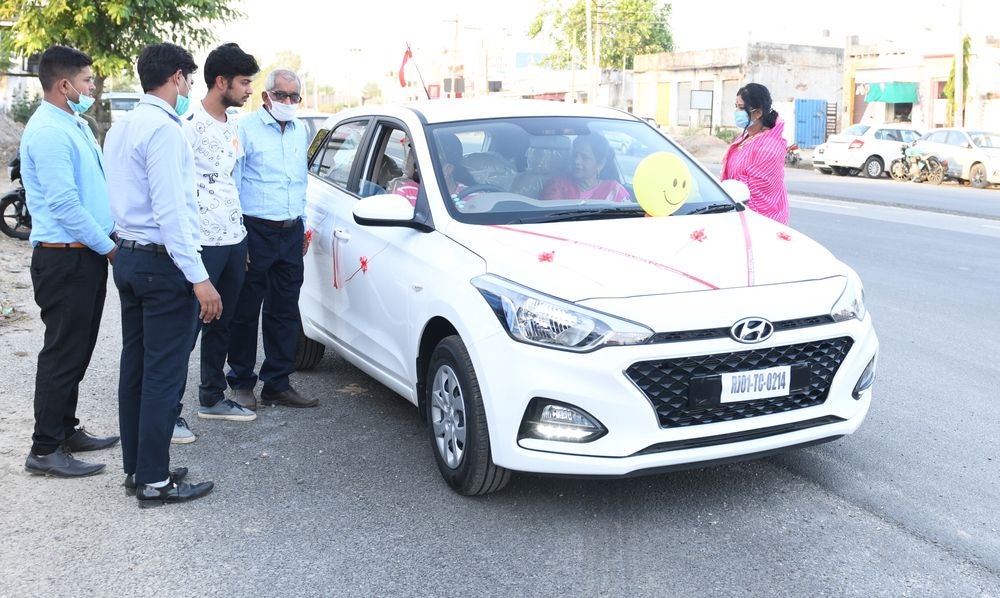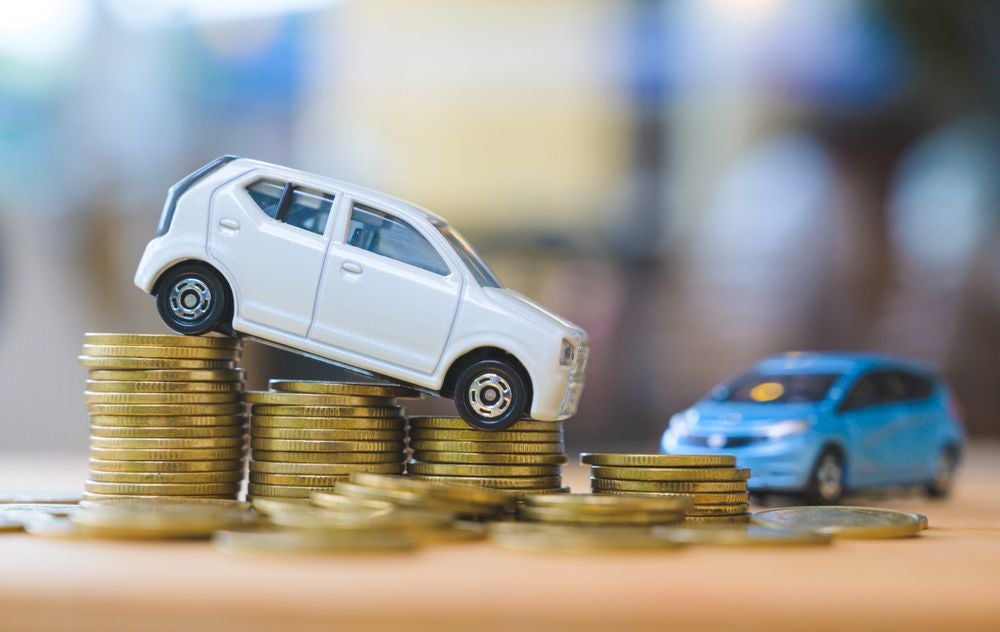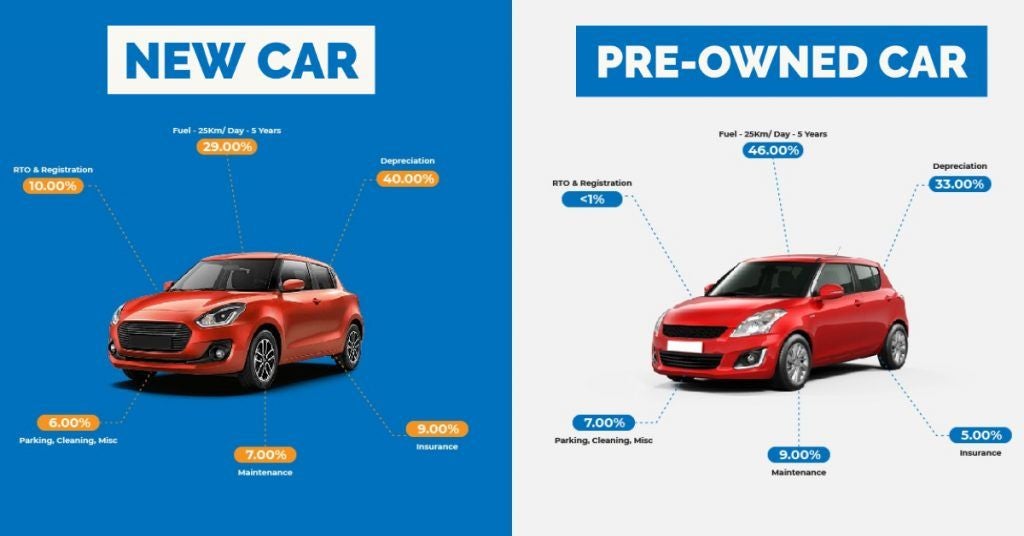Buying a car is a big decision and an expensive one. A car is still a dream for many in India, however, the number of first-time car buyers has skyrocketed in the last decade and a half, thanks to the increase in per-capita income, easy car buying processes, and a handful of options for car loans. Once the decision is made to buy a car, there are a number of questions one must answer – New car vs used car? Hatchback? SUV? Sedan? Is it good to buy a second-hand car in India? Even 10 years ago, it was also a hassle to find a good used car through local dealers or classifieds, and the entire process would be time-consuming, taking weeks if not months. Even when a used car was purchased, one could not be sure of whether or not the car was reliable, if it was accidental, etc.
The mindset of car buyers in India is changing with the growth of the organised pre-owned car industry and companies like CARS24 providing certified used cars with 7-day returns and 12 month warranty. It is easy to find a used car that is in as good condition as a new car, and the demand for certified pre-owned cars has been on the rise. When you list the new car vs used car pros and cons, the biggest one is the fact that used cars can potentially save you lakhs in the initial investment.
Used Car Vs New Car: Which is the Right Option for You?
Picking between a new car and a used car is a subjective decision that will come down to your personal preference and financial situation. For example, even if you could afford to buy a new car, you may prefer to find a similar car if not the same car in the used car market simply because it is more affordable. The savings from buying used could be used to accessorise and customise your car as per your taste, put into savings, or used for any future maintenance costs towards the car.
When picking between a used car vs new car, one also has to consider the condition of the used car and its age. In recent years, it has become easy to find good used cars simply because of the frequency at which people change cars. One can find cars that are less than two years old with only a few thousand kilometres on the odometer for a fair bit less than a new car.
At the end of the day, you need to pick the car that makes the most sense for you, even if you can afford a new and used car. As long as it ticks most of the boxes when it comes to features, is safe, reliable, and serves your purpose well, you can go either way.
Advantages of Buying a New Car

1. Warranty
Perhaps the biggest advantage of buying a new car vs a used car is the manufacturer’s warranty. It goes a long way in alleviating any fears of reliability when buying a car. These days, manufacturers and dealers are also offering extended warranties at reasonable prices, securing your car for up to seven years in some cases.
Read More: Should I Buy Extended Warranty for Used Cars From My OEM Dealership?
2. New Car Feel
Not so much an advantage, but more of a feel-good factor, one can’t argue with the new car feeling. Picking up your new car from the showroom is an experience, and even though it doesn’t add anything to the value of the car, it does make the whole journey that much more special.
3. Latest Tech and Safety Features
Buying a new car means you get the latest technology and safety features, especially if you opt for higher variants. With manufacturers competing to pack their cars with the most features and tech it is nearly impossible to buy a new car today and not get a lot of features, including safety features like airbags, ABS and ESC.
Read More: What to know New Airbags Rules in India? Read out the detailed article about Airbags in Cars.
Disadvantages of Buying a New Car

1. Depreciation
The depreciation of a new car priced around 10 lakhs will be anywhere between 20-25 per cent the moment you drive the car out of the dealership. The percentage of depreciation or the rate of depreciation for a used car is much lower than a new car because the primary depreciation of around 20-25 per cent is already deducted. With manufacturers launching new cars, face-lifts, and limited editions every few months, consumers are constantly upgrading to newer cars and selling their old cars within a year of purchase.
Read More: Everything You Need to Know About Car Depreciation
2. Higher Insurance Cost
New cars are a lot more expensive to insure, at times twice or thrice as expensive as a similar used car. The cost of insurance reduces as the car ages, so even a one year old used car will cost less to insure than a new car. And when buying a used car, chances are the insurance is still valid, another cost that does not have to be borne by you.
3. Expensive
The biggest disadvantage of buying a new car is how much more expensive they are, compared to even one or two year old cars. The insurance, the road tax, it all adds up. No matter what type of car you are buying and its cost, a new car always works out to be more expensive than a used car.
Advantages of Buying a Used Car

1. Safety, and Luxury as Good as a New Car
Most cars produced in the last 5 years have standard safety features like airbags, ABS, and reverse parking sensors which are the primary things a consumer needs in their car. When it comes to the interiors these cars have a decent music system with USB, Bluetooth, and AUX connectivity. If you’re lucky you might also find a used car with additional accessories such as an amplifier, subwoofers, leather seats, reverse camera, and a touch-screen infotainment system. Why spend more when you can avail the features of a new car in a good condition pre-owned car?
2. Insurance Cost is Cheaper Than a New Car
One of the main benefits of a used car is cheaper insurance costs, as the insurance premium reduces as the car ages.
Read More: Car Insurance Policy – Everything You Ever Wanted to Know
3. Best Choice for New Drivers
Used cars are undoubtedly the best choice for someone learning to drive or still new to driving. A few scratches or dents are quite common when you begin to start driving and it is wise to buy a new car once you’re confident enough to take on the crowded Indian roads.
Disadvantages of Buying an Old Car
Buying an old car can be a cost-effective option, but it also comes with a few potential disadvantages. Below are some key factors to consider when deciding if an older car is the right choice for you.
1. Maintenance Costs
Older cars may require more frequent repairs and maintenance, which can add up over time and become expensive.
2. Environmental Impact
Older cars may not be as environmentally friendly as newer cars, with less efficient powertrains and emissions control technologies. However, one needs to consider the environmental impact of producing a new car from scratch as well.
Difference Between the Depreciation of a New Car Vs a Used Car
In simple terms, the depreciation of your car refers to the decrease in its value over time. New cars and used cars both depreciate , but the rate of depreciation can be different. Without further ado, let's take a look at some of the key differences between the depreciation of a new car and a used car:
- New cars generally depreciate faster in the first few years of ownership. This is because a new car loses the most value in the first year of ownership.
- The rate of depreciation of a new car slows down after the first few years, but the car will continue to lose value over time.
- Used cars generally depreciate at a slower rate than new cars. This is because the initial depreciation has already occurred, and the car has already lost the most value.
- The rate of depreciation can vary depending on the age, make, model, and condition of the car. A used car in good condition is less likely to depreciate as fast as a used car that is not well-maintained.
In other words, new cars tend to depreciate faster in the first few years of ownership than used cars. This rate of depreciation slows down after the first few years, but the car will continue to lose value over time.
The rate of depreciation can vary depending on the age, make, model, and condition of the car. It's important to note that the actual depreciation of a new or used car can vary depending on factors such as the brand, model, make, condition, mileage, and location.
New Car Vs Used Car Interest Rates
The interest rate on a car loan is the reflection of the cost of borrowing money to purchase a vehicle. It should be noted that the interest rate can change depending on whether you are purchasing a new or used car. Here are some of the major differences between the interest rates of a new car and a used car:
- Interest rates on new car loans are lower than the interest rates on used car loans, simply because new cars are a safer investment for the lender.
- New cars that don't have mechanical issues tend to have a longer lifespan, which makes them less risky for the lender.
- Interest rates on used car loans tend to be higher than interest rates on new car loans because used cars are considered to be a riskier investment for the lender.
- Used cars have a higher chance of mechanical issues and a shorter lifespan, which makes them more risky for the lender.
- The interest rates for a new car and an old car depend on some key factors such as the age, make, model and condition of the car, and the terms of the loan.
Used Luxury Car Vs New Economic Car
One of the biggest advantages of buying used, is that you can possibly get cars that are a few segments higher than new cars at lower segments, for the same cost. This is a big draw as even used luxury cars will often have features that even top of the line new cars don’t have. These cars can also be sold after being driven for a few years at a small loss, making it not only a luxurious choice, but also an economical one.
How to Decide Between an Old and a New Car
Choosing between an older or newer vehicle can be tricky as both come with a set of advantages and disadvantages. But, to help make things a little easier, here are some key considerations to keep in mind when making this decision:
1. Cost
New cars come with a higher price tag, but have lower maintenance costs and a solid warranty. On the other hand, an older car is initially affordable, but often requires more frequent repairs and maintenance.
2. Reliability
New cars are often more dependable compared to their older counterparts. Mostly, because they use the latest technology which allows them to function at a better bandwidth.
3. Features
New cars are often equipped with the latest features and technology, such as touchscreens, navigation systems, and advanced infotainment systems. While older cars may not have these features, they may still have the basic amenities that are important to you.
4. Safety
While older cars may not have certain features, a lot of new cars come equipped with the latest safety features, such as automatic emergency braking, extra air bags, and blind spot monitoring.
5. Fuel Efficiency
New cars are generally more fuel-efficient than older vehicles and are intended to be more environmentally friendly.
Read More: 15 Tips to Get the Best Mileage From Your Car
6. Depreciation
New cars tend to depreciate faster than older cars, meaning they lose value more quickly. So, if you're planning to buy a car and sell it in the future, it's important to keep aware of the depreciation associated with the model and brand of your car.
7. Environmental Impact
New cars are often designed to be more environmentally friendly, with features such as hybrid or electric powertrains, which help reduce your carbon footprint to a great extent.
The individual needs and preferences of different individuals, safety, affordability, reliability, fuel efficiency, depreciation, and environmental impact are some of the factors that dictate your decision to choose between an older or newer car. In addition to it, it is always considered wise for you to seek professional help and let the experts help you make an informed decision.
Conclusion
At the end of the day, you have to decide which car is best for you. Both new cars and used cars have their pros and cons, and as long as you find a car that you like, it should not matter whether it is new or used.
One of the biggest disadvantages of buying a used car was the unorganised used car market, with dealers trying to sell unsuspecting buyers a lemon. However, companies like CARS24 that offer 12 month warranty and 7 day returns, making buying a used car as reliable as new.
CARS24 has a variety of used cars to choose from in every budget, whether it’s your first car or an upgrade, there’s something for everyone at CARS24.com.
FAQ's
Q. Is it better to buy a used or new car in India?
Many people ashy away from buying used cars and want their first vehicle to be brand new. But, in the Indian context, buying an old car is cost-efficient and needs less maintenance. On the other hand, a new car comes with updated technology, better safety features, and is less damaging to the environment.
Q. Can you negotiate the price of a new car in India?
Newer cars are often made available to the people at a base price which tends to go up depending on the various specifications of the same model and the additional accessories. It also depends on the showroom or dealership. If you're looking for heavy negotiations, it is advisable to consider buying a used car which offers more wiggle room when it comes to the prices.
Q. Which is easier to buy, a new car or a second-hand car?
Whether you're planning to buy a new car or a used one, the right sources would make the process easier for you. While the dealerships give you more customisation options for your new car, individual sellers have relatively limited options to choose from. A new car comes with advanced features and better warranty, old cars are often easier on your pocket.










-checklist-for-new-cars-(1).jpg&w=828&q=75)





.png&w=828&q=75)








.png&w=640&q=75)



.webp&w=640&q=75)
.webp&w=640&q=75)
.webp&w=640&q=75)









